Classes | |
| class | default_parse_context |
| class | deny_parse_context |
| class | input |
| struct | last_error_t |
| struct | null |
| class | null_parse_context |
| struct | serialize_str_char |
| class | value |
Typedefs | |
| typedef value::array | array |
| typedef value::object | object |
Enumerations | |
| enum | { null_type , boolean_type , number_type , string_type , array_type , object_type } |
| enum | { INDENT_WIDTH = 2 } |
Functions | |
| template<typename Iter > | |
| void | copy (const std::string &s, Iter oi) |
| template<typename Iter > | |
| void | serialize_str (const std::string &s, Iter oi) |
| template<typename Iter > | |
| int | _parse_quadhex (input< Iter > &in) |
| template<typename String , typename Iter > | |
| bool | _parse_codepoint (String &out, input< Iter > &in) |
| template<typename String , typename Iter > | |
| bool | _parse_string (String &out, input< Iter > &in) |
| template<typename Context , typename Iter > | |
| bool | _parse_array (Context &ctx, input< Iter > &in) |
| template<typename Context , typename Iter > | |
| bool | _parse_object (Context &ctx, input< Iter > &in) |
| template<typename Iter > | |
| std::string | _parse_number (input< Iter > &in) |
| template<typename Context , typename Iter > | |
| bool | _parse (Context &ctx, input< Iter > &in) |
| template<typename Iter > | |
| std::string | parse (value &out, Iter &pos, const Iter &last) |
| template<typename Context , typename Iter > | |
| Iter | _parse (Context &ctx, const Iter &first, const Iter &last, std::string *err) |
| template<typename Iter > | |
| Iter | parse (value &out, const Iter &first, const Iter &last, std::string *err) |
| std::string | parse (value &out, const std::string &s) |
| std::string | parse (value &out, std::istream &is) |
| void | set_last_error (const std::string &s) |
| const std::string & | get_last_error () |
| bool | operator== (const value &x, const value &y) |
| bool | operator!= (const value &x, const value &y) |
Typedef Documentation
◆ array
| typedef value::array picojson::array |
Definition at line 221 of file spec_test_generator.cpp.
◆ object
| typedef value::object picojson::object |
Definition at line 222 of file spec_test_generator.cpp.
Enumeration Type Documentation
◆ anonymous enum
| anonymous enum |
| Enumerator | |
|---|---|
| null_type | |
| boolean_type | |
| number_type | |
| string_type | |
| array_type | |
| object_type | |
Definition at line 123 of file spec_test_generator.cpp.
◆ anonymous enum
| anonymous enum |
| Enumerator | |
|---|---|
| INDENT_WIDTH | |
Definition at line 136 of file spec_test_generator.cpp.
Function Documentation
◆ _parse() [1/2]
|
inline |
Definition at line 1022 of file spec_test_generator.cpp.

◆ _parse() [2/2]
|
inline |
Definition at line 844 of file spec_test_generator.cpp.

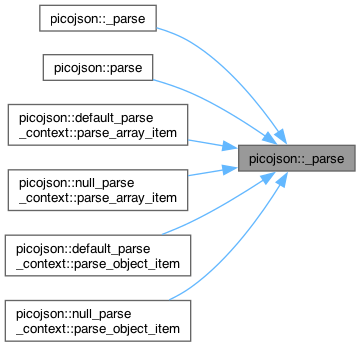
◆ _parse_array()
|
inline |
Definition at line 785 of file spec_test_generator.cpp.
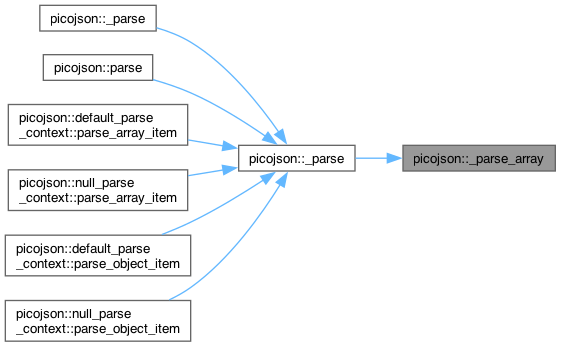
◆ _parse_codepoint()
|
inline |
Definition at line 704 of file spec_test_generator.cpp.

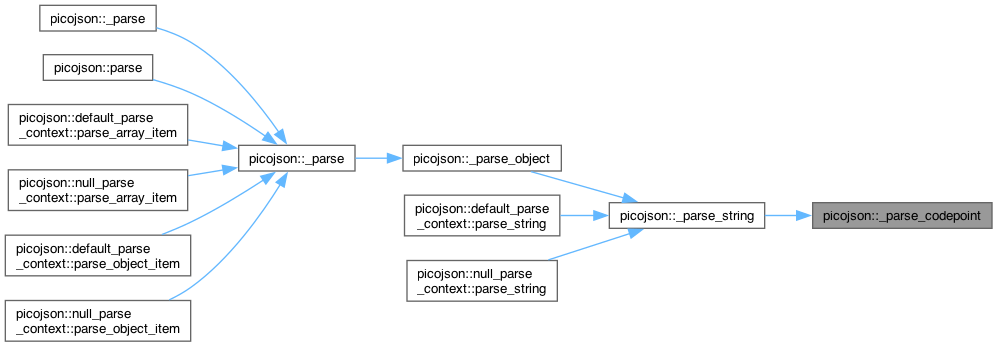
◆ _parse_number()
|
inline |
Definition at line 823 of file spec_test_generator.cpp.
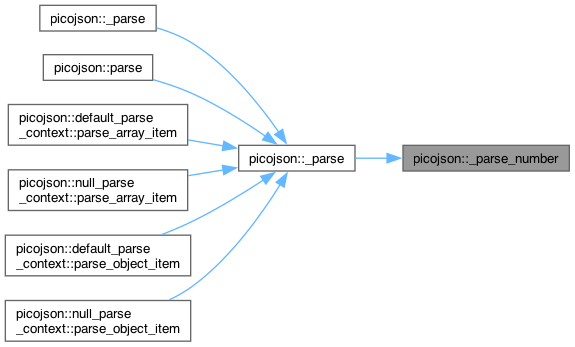
◆ _parse_object()
|
inline |
Definition at line 803 of file spec_test_generator.cpp.

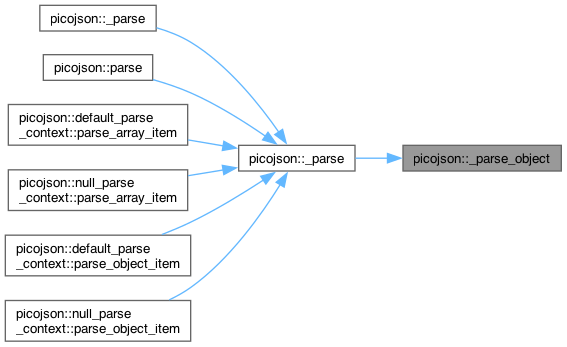
◆ _parse_quadhex()
|
inline |
Definition at line 682 of file spec_test_generator.cpp.

◆ _parse_string()
|
inline |
Definition at line 746 of file spec_test_generator.cpp.

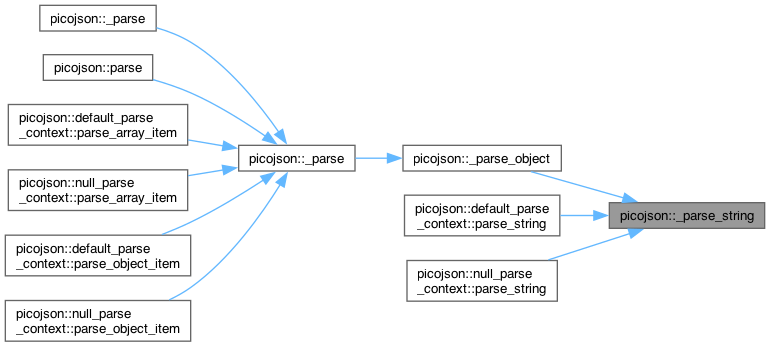
◆ copy()
| void picojson::copy | ( | const std::string & | s, |
| Iter | oi ) |
◆ get_last_error()
|
inline |
Definition at line 1067 of file spec_test_generator.cpp.
◆ operator!=()
Definition at line 1088 of file spec_test_generator.cpp.
◆ operator==()
Definition at line 1069 of file spec_test_generator.cpp.

◆ parse() [1/4]
|
inline |
Definition at line 1041 of file spec_test_generator.cpp.

◆ parse() [2/4]
|
inline |
◆ parse() [3/4]
|
inline |
Definition at line 1015 of file spec_test_generator.cpp.

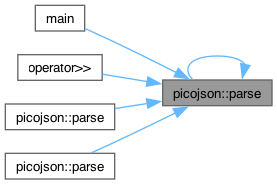
◆ parse() [4/4]
|
inline |
Definition at line 1052 of file spec_test_generator.cpp.

◆ serialize_str()
| void picojson::serialize_str | ( | const std::string & | s, |
| Iter | oi ) |
Definition at line 532 of file spec_test_generator.cpp.
◆ set_last_error()
|
inline |
Definition at line 1065 of file spec_test_generator.cpp.


